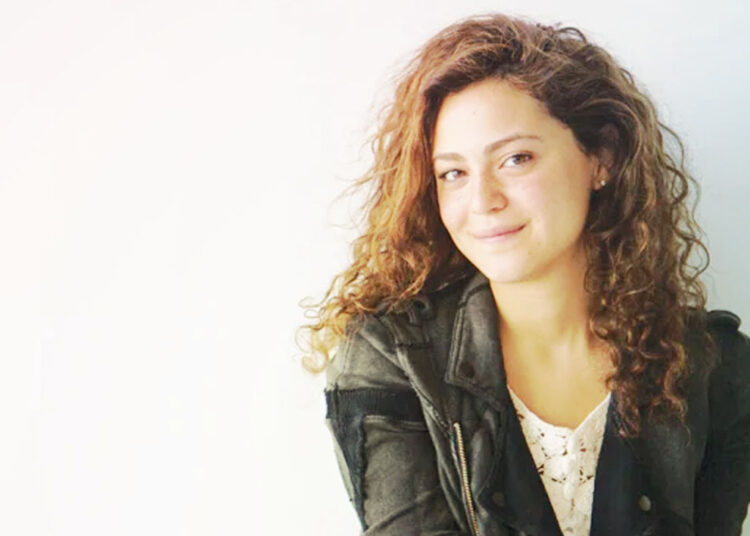
Titled as ‘Queen of Breaking’, May Calamawy’s parents wanted her to get married and have children, but she defied all the conditioning.
Monitoring Desk
To the world, May Calamawy is known as Layla El-Faouly from Moon Knight, the first Arab superhero, and now as Dena Hassan in Ramy.
Egyptian-Palestinian actress May Calamawy was offered a life set in all the stereotypes attached to women, but she rebelled to do things her own way. And it hasn’t been an easy ride.
“To talk from my experience, there is so much deep conditioning growing up (as a girl) in the Middle East. Like my parents wanted me to look a certain way, work in a certain field, be married and have children by a certain age,” Calamawy confesses.
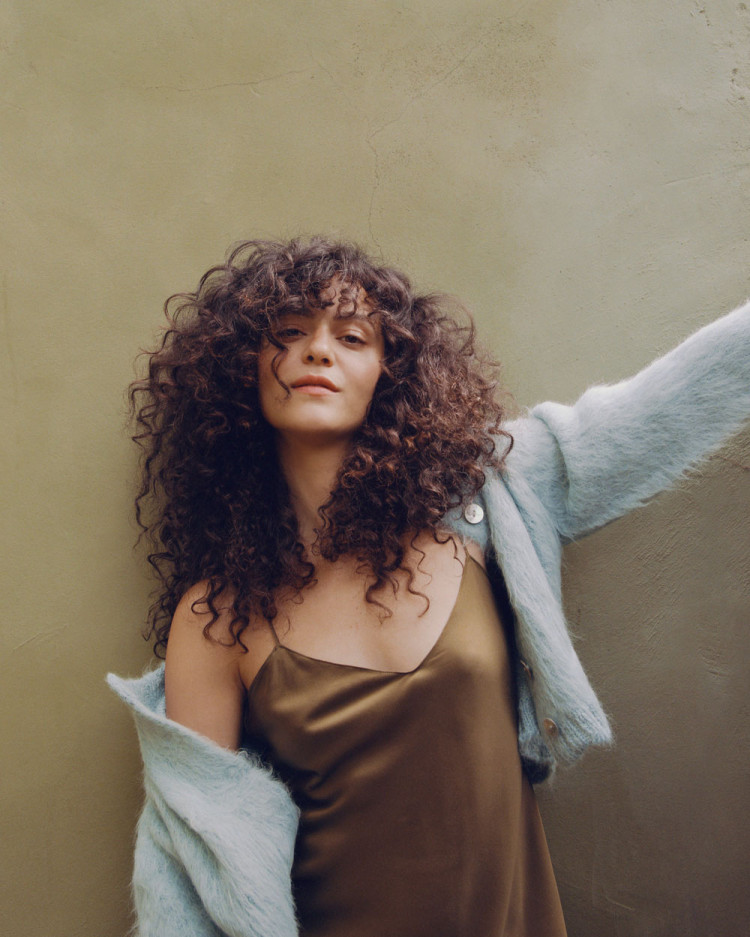 At the moment, she is busy spinning her web of stardom in the West, but there was a time when she studied industrial design at her father’s request. She initially booked roles in short films, taking baby steps towards family’s approval.
At the moment, she is busy spinning her web of stardom in the West, but there was a time when she studied industrial design at her father’s request. She initially booked roles in short films, taking baby steps towards family’s approval.
“I have defied all the conditioning. I was like ‘no, I’m gonna do it my way’. And it is hard because you doubt yourself, you second guess and many times, you are like, ‘Am I doing it right? Everyone I know is doing it the other way’,” says the 35-yead-old, who is glad that she stuck to her gut and followed her dream, which led her to Hollywood.
“For me, it was the biggest blessing. I’m grateful I did that. But I would like to mention that there is no right or wrong. It’s more like follow whatever you want to do and find out what it is that you want. Whatever it is, stick to it. Don’t live for anyone else. And that’s just the main thing I want to see more women do (in showbiz, and in general),” adds the actor, who was last in web series, Moon Knight.
After doing small roles in TV shows such as Madame Secretary, The Long Road Home, The Brave, and FBI, Calamawy finally got the ticket to go trace her roots onscreen when she picked the character of an Arab woman in Ramy. She took another step in the direction when she became Marvel Cinematic Universe’s first Arab leading lady in Moon Knight, which takes a note out of Egyptian culture and mythology in the superhero world.
Acting is not just her passion, but more like therapy. “It is always challenging, confronting in the beginning. Like for Moon Knight, I really had to learn how to believe in myself and trust my instincts and speak up”.
Here is excerpts from her recent interview published by Vogue
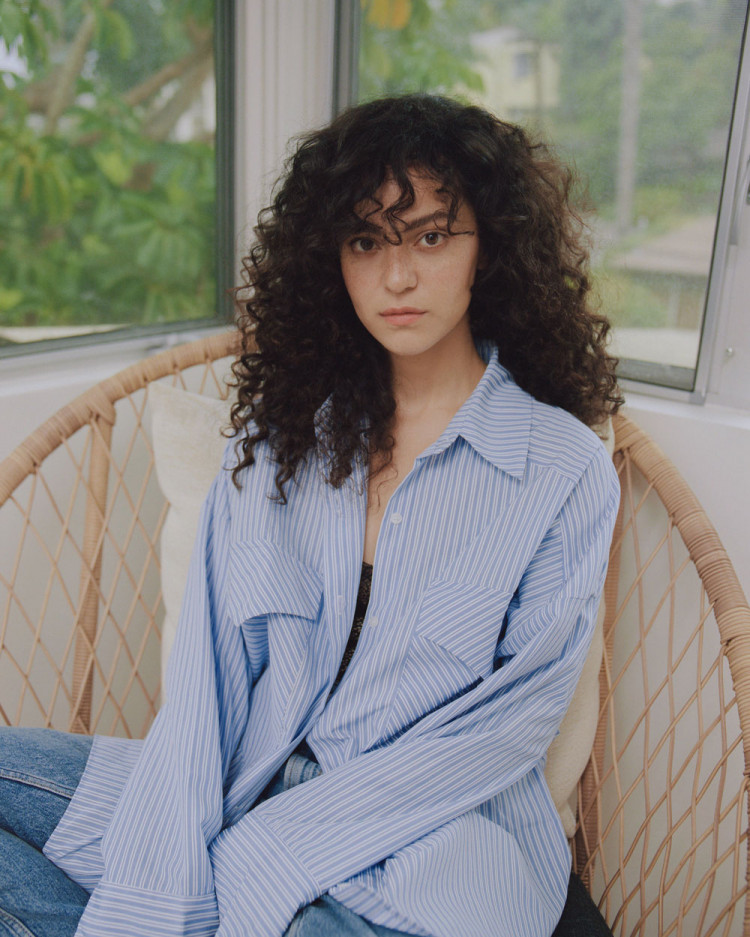 What were some of the challenges you faced at the beginning of your career and who were your biggest supporters then?
What were some of the challenges you faced at the beginning of your career and who were your biggest supporters then?
The business of acting is really difficult, there isn’t one path, so it’s quite hard to follow someone else’s lead, even more so as an Arab woman. My mom was a huge supporter, but she got ill right after I graduated from college and so I had to put my career on hold for three years to be with her. It took me two years after she passed away to build up the courage to really go for it. Laith Nakli who plays uncle Naseem on Ramy is a very dear friend of mine and became another big supporter and mentor. Through him, I ended up studying at the William Esper Studio in New York City, and once I graduated he helped me find an agent. I was so lucky to have someone who had been working professionally to guide me, they don’t teach you about the business side of the industry in school at all.
Who were the actors you watched growing up and who inspired you?
My parents would often watch old black-and-white Egyptian films, but as I went to an international school I never really got into them the same way. My knowledge at that point of Arab actors was limited, as growing up in Bahrain we would mainly consume American and British films (often much later than the rest of the world). Actors I was inspired by would be dictated by the movies I had access to, but prominent in my childhood were Death Becomes Her and Meryl Streep’s performance was so feisty and messy. I was attracted to that and didn’t know why. Steel Magnolias was a movie I would watch with my mom, so Julia Roberts, Sally Fields, and the late Olympia Dukakis were all teachers. I took a class with Olympia in NYC and some of the biggest lessons I had about acting happened in that class. Dumb & Dumber and Ace Ventura with Jim Carrey were exactly my sense of humor. I was also obsessed with Ethan Hawke because of White Fang and Great Expectations so I had to act really cool around him when we worked together on Moon Knight.
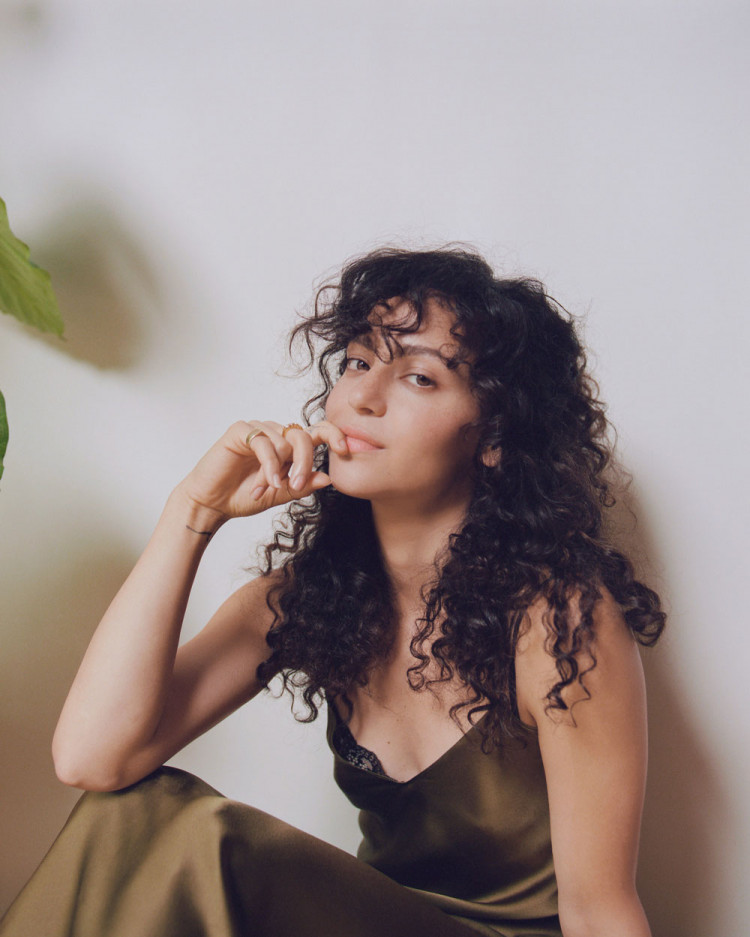 What was it like being cast as and playing Layla El Faouly in Moon Knight, and being the first Arab female superhero?
What was it like being cast as and playing Layla El Faouly in Moon Knight, and being the first Arab female superhero?
When I was first auditioning for the role I wasn’t given any information on the character but was so excited to play an Egyptian woman on a project of that scale, with an Egyptian director and Marvel’s culture-shifting power behind it. Playing Layla was so fun and scary at the same time. I’ll usually start developing a character through their emotional/inner life, but she was one of the first characters that I started to understand through her physicality. The training I immersed myself in before and during the filming process had a big impact on how she developed, and Marvel was so open and collaborative with Oscar [Isaac], Mohamed [Diab], Ethan [Hawke], and me that it felt like nearly anything was possible. It’s not often you see an Egyptian/Arab woman kicking butt on screen as she does, I hope people felt as empowered watching it as I felt doing it.
It wasn’t until we were in the pre-production phase and I was asked to go do a body scan, that I found out she’d be a superhero. Thinking about young Arab girls being able to see someone that looked like them in the MCU made this role a wonderful honor and responsibility. It didn’t really hit home until our incredible costume designer Meghan Kasperlik dressed me in the final costume and we had a Zoom session with Kevin Feige for his approval. I remember being so overwhelmed but managing to blurt out, “I’m going to leave my hair curly.” Kevin and the other producers said “Great, we love it! And that’s how a new superhero is made!” I hope and pray that I am the first of many in this space, representation is important and Marvel recognized this ahead of other big studios which inevitably means others will follow suit.
Given that some actors go through their entire careers without having to be political, would you say there’s a certain pressure and responsibility that comes with being an Arab female actor in the international industry? Do you always welcome this pressure?
It could be argued that being an Arab woman in this industry and having the opportunity to choose specific work is political in itself. Being a Palestinian actor and stating so, could also be considered a political statement. Deciding on what kind of roles I want to play, and what kind of stories I want to tell is also political because I am making choices. This comes with the territory and what one person calls “political” is just my reality and our collective reality as brown women, so it’s not really pressure, it just is what it is.
Do you think it keeps actors such as yourself from being offered jobs from a broader pool of roles that are not necessarily linked to any ethnicity and identity?
I like to think that “what’s for me, will never go past me.” I hope to attract roles and work with people that share a similar value system. If someone doesn’t want to work with me because of my identity, I probably wouldn’t want to work with them either. We all have our boundaries and lines, and as I’ve got a little more life experience I’ve come to understand there are some core values that are non-negotiable for me. Someone who will outright not consider me because of where I’m from is someone I don’t think I’d want to work with anyway, so it works out for everyone.
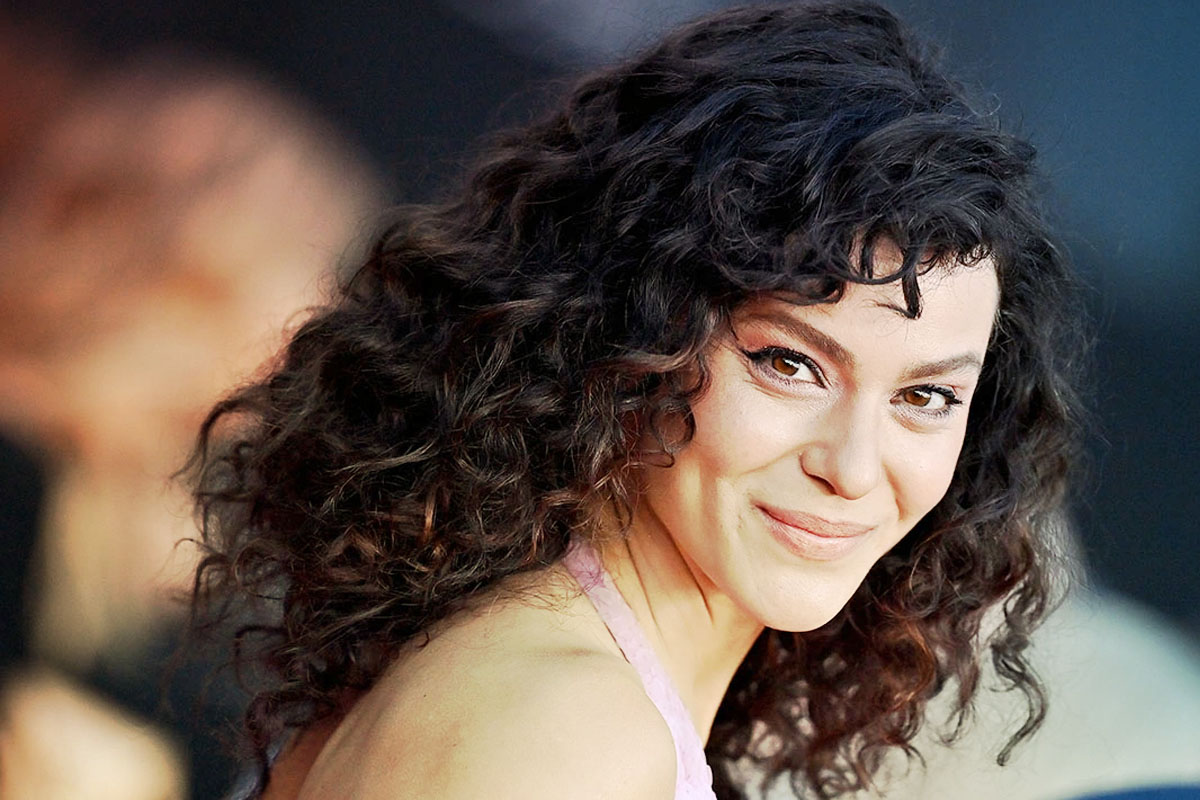 Would you say the industry has come a long way in how it tells the stories of Arabs and minorities? What are some of the changes you would like to see in the future?
Would you say the industry has come a long way in how it tells the stories of Arabs and minorities? What are some of the changes you would like to see in the future?
The industry has definitely moved the needle, but until we reach a place where this subject isn’t even part of the conversation because it’s so normal, it means there is still a lot of work to do. We are at an important junction, where our stories are not only being told a little more often but we are being asked to use our voices and have agency in the process. This isn’t just valuable because we get to express ourselves, but because it gives us the freedom to discover what we want to express when historically we haven’t been given that space to explore and figure it out.
Taking space, playing, and discovering as an Arab woman has been presented as a privilege but it’s actually a right. I want to see more women from all backgrounds use this window of opportunity to continue the expansion. The industry is watching and finally understanding what we’ve been trying to tell them for so long, that the human experience is universal and that “non-traditional” stories are commercially successful too!
The response to Ramy, especially the new season, has been phenomenal. What was it like going into playing Dena in the first season vs. the third?
In the first season, I was so precious with the experience because it was my first lead role. My only film/TV experience prior was in one recurring and two guest star roles so I never got the chance to fully explore a character in the same way. Usually, a guest star role can require an actor to enter a very high stake situation (you just found out your husband was murdered, etc.) and so all these roles required extreme emotional turmoil. Because of this, and how much less effort Dena’s role required of me (primarily because of the great writing and my connection with the character) it felt like I was doing and contributing nothing like it was weirdly too easy. As the seasons progressed I was invited by Ramy [Youssef] to be more involved in shaping my character’s story and by this season it felt like ‘coming home’ to a family event in many ways. Ramy and the other writers are all so talented, and being invited to sit with them and share ideas is a space I love to be in.
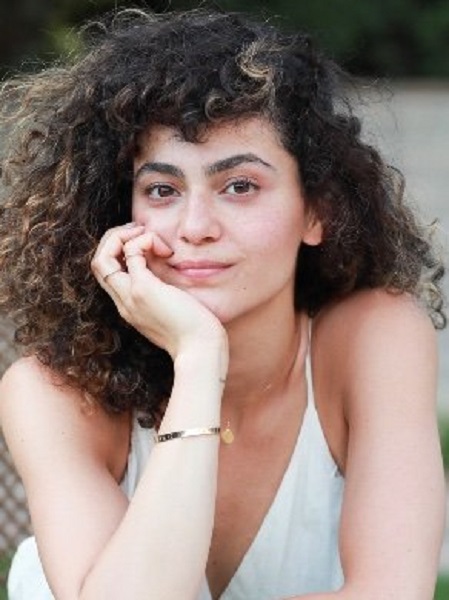 What is the atmosphere like on set? Are there any memorable anecdotes with the cast that you can share with us?
What is the atmosphere like on set? Are there any memorable anecdotes with the cast that you can share with us?
I was recently given the title “The Queen of Breaking” by Laith (uncle Naseem) because of how much I laugh during our scenes. Shocking, because it usually happens when he or Hiam is with me, so for the record, they’re actually to blame too. While filming there was one particular scene that I laughed in so many times, that Ramy called me while editing telling me that out of eight shots they filmed he could only use one, because only in that one could they cut before I broke down laughing. Whether I’m in a scene or find myself going in just to watch someone else’s scene, we always have so much fun on set. I get to learn something new daily. We really are like a family, I‘m totally comfortable around everyone, and we’re also all good friends so we enjoy each other’s company whether we’re working with each other or not. Imagine we all hated each other! That would have sucked after three seasons. I hope to work with everyone in this group again on other projects.
You have worn some really cool pieces on the red carpet, including the bold red Gucci suit. What does being stylish mean to you?
For the Moon Knight screenings/premieres, I worked with Molly Dickson, an extremely talented stylist. I wouldn’t have considered any of those pieces if it wasn’t for her. I’ll say that I’m pretty good at knowing instantly when I try something on if it’s a yes, and when I put that suit on it was definitely a yes. It captured that moment for me perfectly. The choices I make in what to wear, provide the aesthetic outer life to help bring out an authentic part of me that I’m interested in sharing. I’m very private by nature, and being bold but also comfortable is key in helping me remain authentic.
How would you describe your personal style?
I like to go thrift shopping and make a conscious effort to avoid any fast fashion. I don’t feel limited to any one look, but generally, if you forced me to choose just one then I would have to say “laid back and loose,” If I could dress in fall clothes all year, I’d be really happy.
_________________
Courtesy: Hindustan Times (Published on May 05, 2022) and Vogue (Published on Dec 12, 2022)